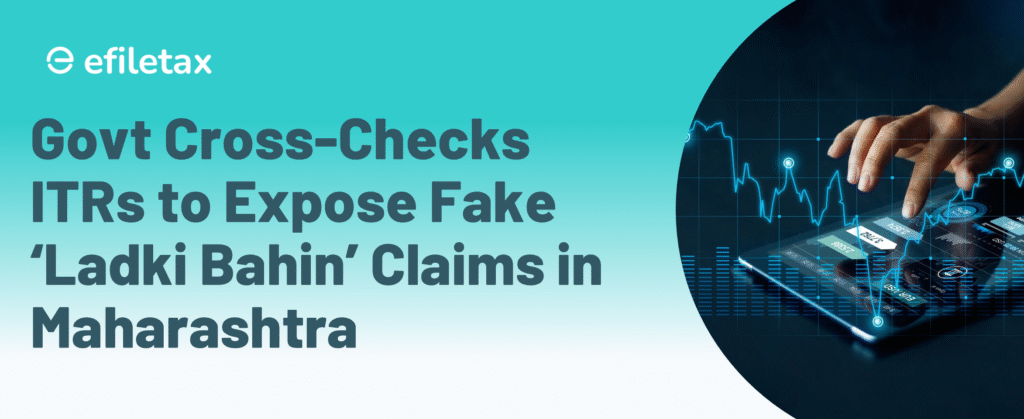
Maharashtra Govt Turns to Income Tax Data to Verify ‘Ladki Bahin Yojana’ Claims
Focus Keyphrase: Income tax data
To curb misuse and ensure only eligible women benefit, the Maharashtra government has now sought income tax data to verify applications under the Mukhyamantri Ladki Bahin Yojana. This move follows allegations of ineligible claimants registering under false income declarations.
Let’s break it down in simple terms for taxpayers, consultants, and professionals.
What Is Ladki Bahin Yojana?
The Mukhyamantri Ladki Bahin Yojana is a flagship welfare scheme announced in 2024, offering ₹1,500 monthly assistance to eligible women aged 21–60 years in Maharashtra.
Key eligibility conditions include:
- Must be a resident of Maharashtra
- Belong to economically weaker sections
- Annual family income must be less than ₹2.5 lakh
- Not an income tax payer (for self or family head)
Why Is Income Tax Data Being Used?
Due to growing complaints about fake declarations and non-eligible women applying, the state government has asked for PAN-linked income tax records to cross-verify income details.
Here’s how this will help:
- Detect false claims: Matches Aadhaar/PAN with I-T returns
- Filter out taxpayers: Only non-income tax payers are eligible
- Boost transparency: Backed by verified government data
Legal Basis: The state is acting under Section 138 of the Income-tax Act, 1961, which permits tax data sharing with state authorities for public interest and welfare verification.
What the Government Has Said
As per official clarification issued by Maharashtra Deputy CM Devendra Fadnavis on June 3, 2025:
“We will only include women who or whose family heads do not file income tax. Using tax return data, we will remove ineligible applicants.”
This comes after reports that over 40 lakh applications had been received, raising concerns about possible fraud.
Income Tax Data Verification: Step-by-Step
If you’re applying under the scheme, here’s how the government will likely verify:
| Step | Verification Check |
|---|---|
| 1 | Cross-check PAN with I-T portal |
| 2 | Retrieve ITR status (filed or not) |
| 3 | Match Aadhaar with I-T and ration card records |
| 4 | Check if family head is a registered taxpayer |
| 5 | Approve or reject based on income filter |
Expert View: Why This Move Is Critical
“Linking income tax data with welfare schemes is a smart and much-needed step to weed out fraud and ensure taxpayer money is spent where it’s most needed.”
— CA Shreya Mehta, Tax Consultant
Legal and Data Privacy Concerns?
- Data sharing is legal under Section 138 of the Income-tax Act.
- The information will be used only for welfare filtering, not for assessment or penalty purposes.
- Applicants must ensure PAN and Aadhaar are correctly linked to avoid rejection due to mismatches.
Quick Summary (Google Snippet)
Maharashtra will use income tax data to verify Ladki Bahin Yojana applicants, ensuring only non-taxpaying women with income under ₹2.5 lakh qualify. The move aims to prevent fraudulent claims and improve scheme transparency.
FAQs
Q1. Will my ITR be shared with the state government?
A. Only limited verification data (like filing status and income) will be accessed under Section 138, not full ITR details.
Q2. I am a homemaker, but my husband files ITR. Am I eligible?
A. No. If your family head files ITR, you’re not eligible under current norms.
Q3. What if I made an error in income declaration?
A. You may face rejection. Update your records if you’re genuinely eligible and reapply when allowed.
Conclusion
Using income tax data to verify welfare scheme eligibility is a landmark governance step. It not only upholds fairness but also preserves public funds for the truly needy. If you’re unsure about your eligibility or ITR status, consult a tax expert or reach out to Efiletax for guidance on compliance and documentation.